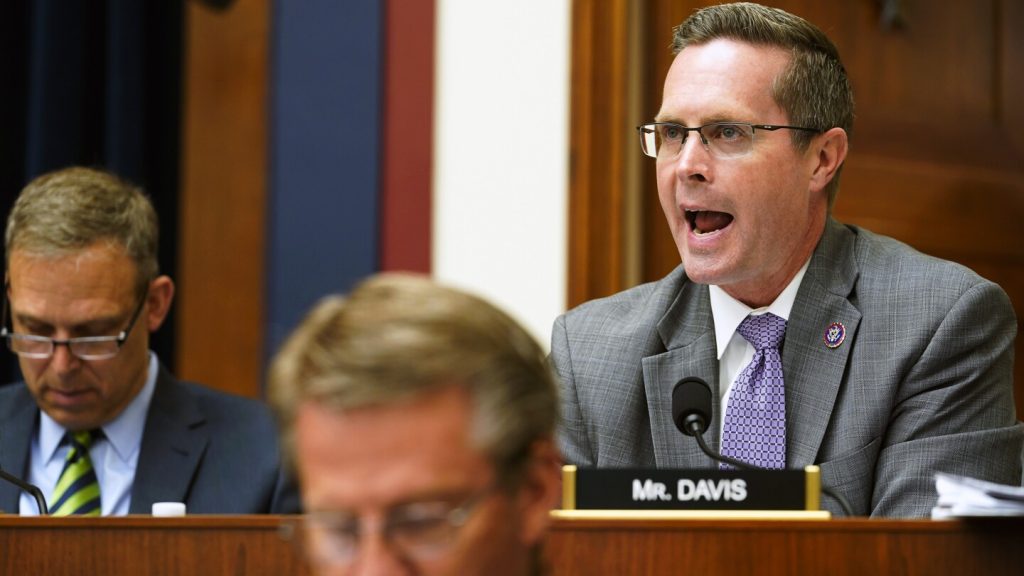Rodney Davis, a former Illinois congressman, has been fined $43,475 by the Federal Election Commission for failing to refund excess contributions in a timely manner. The violations occurred during the 2021-2022 election cycle, with one contribution of $3,625 and general election contributions of $479,784 not being properly redistributed within 60 days, resulting in the fine. Federal campaign finance law prohibits contributions exceeding $2,900 per cycle from an individual or single-candidate political committee, and $5,000 per election from a multicandidate committee. Excess contributions must be refunded or redesignated within 60 days, according to the law.
The FEC’s letter reports the fine against Rodney Davis’ campaign committee, Rodney for Congress, and its treasurer, Thomas Charles Datwyler. The committee disclosed refunds of excessive contributions on quarterly and year-end reports for 2022, and in January 2024 filed paperwork disclosing the refunds that were part of the negotiated settlement. Davis, a 54-year-old resident of Taylorville, served five terms in Congress but was not eligible for the larger contribution amount because he was not on the 2022 general election ballot. After the 2020 congressional redistricting controlled by Democrats in the Illinois General Assembly, Davis was pushed into a district with conservative Republican Mary Miller, who beat him in the 2022 GOP primary with more than 57% of the vote.
Attempts to reach Davis for comment were unsuccessful as a call to a telephone number associated with him went unanswered. A phone message was left for Datwyler, the treasurer of Rodney for Congress. In a negotiated settlement with Davis’ committee and Datwyler, the FEC found that the failure to properly redistribute excess contributions within the required 60 days led to the fine. Davis’ committee informed the FEC that it would dissolve upon resolving the matter and the fine is payable by July 18. The FEC’s action serves as a reminder to political campaigns about the importance of timely and accurate handling of campaign contributions within the legal limits set by federal campaign finance law.
The fine imposed on Rodney Davis’ campaign fund highlights the consequences of failing to adhere to campaign finance regulations and guidelines set by the Federal Election Commission. Campaign committees are required to refund or redesignate excess contributions within a specific timeframe, as violating these rules can result in penalties and fines. As a former congressman, Davis’s committee was found to have failed to comply with these regulations during the 2021-2022 election cycle, resulting in the imposed fine. This case underscores the importance of transparency and accountability in campaign finance practices to ensure compliance with federal laws and regulations governing political fundraising activities.
The decision by the FEC to fine Rodney Davis’ campaign fund for improper handling of campaign contributions serves as a cautionary tale for other political campaigns and candidates. Timely and accurate reporting of contributions and expenditures is crucial to maintaining the integrity of the electoral process and upholding transparency in campaign finance operations. The negotiated settlement between Davis’ committee, Rodney for Congress, and the FEC underscores the need for campaigns to diligently follow federal campaign finance laws to avoid penalties and fines. As the deadline for payment of the fine approaches, it is a reminder of the consequences of non-compliance with regulations governing political fundraising practices.
The disclosure of excessive contributions refunds on quarterly and year-end reports for 2022 and the subsequent filing of paperwork in January 2024 indicate efforts by Rodney Davis’ committee to rectify the violations and comply with FEC requirements. The decision to dissolve the committee upon resolving the matter reflects a commitment to addressing the issues raised by the FEC and ensuring that all obligations are met in a timely manner. This case involving a former congressman highlights the complexities and challenges of navigating campaign finance laws and regulations, underscoring the importance of proper oversight and adherence to legal requirements in political fundraising activities. As campaigns continue to evolve and adapt to changing regulations, maintaining compliance with campaign finance laws remains essential for upholding the integrity of the electoral process.


